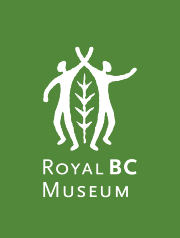Royal BC Museum Biodiversity Research During the Pandemic
Nature is unrelenting. The zoonotic origin of the SARS-CoV-2 novel virus responsible for COVID-19 is a powerful reminder of the connections between human activities, health and biodiversity. As I write this, the COVID-19 pandemic continues to impact all aspects of human society, while the urgency to document, understand and protect biodiversity remains unabated. Museums in particular face the dual challenges of keeping the public engaged and maintaining their research programs. In many institutions, fieldwork, normally a major component of research activities during the summer months, has had to be postponed. Many aspects of learning, public engagement and curation of collections have moved online.
Researchers at the Royal BC Museum are considering the direct and indirect consequences of the pandemic on biodiversity while continuing to meet the challenges of biodiversity research. Aside from anecdotal reports (indicating, for example, that in many places biodiversity may be benefitting from reduced human activity), it is too early to provide a definitive answer to how the pandemic is affecting biodiversity. Given time, and with ongoing communication among scientists in natural history collections and the wider scientific community, this question can be answered by mobilizing and using biodiversity data found in natural history collections.
Ongoing communication of natural history collections is important, especially during this challenging time. Many people experience natural history collections only as museum exhibits. In this context, it can be difficult to visualize museum collections as baseline biodiversity data that are fundamental to diverse scientific fields. However, natural history specimens constitute the data for documenting biodiversity and constructing phylogenies, and they address evolutionary, ecological and biogeographic questions. Additionally, possibilities extend beyond the physical specimen, and may include genomic, behavioural and occurrence data. Therefore it is crucial that collections be maintained, that they grow, and that their data be continually enriched and shared. Through collections, we can improve our understanding of evolving species interactions, including those of pathogens and their hosts, which can help to better predict the risks of novel zoonotic diseases.
What about fieldwork? To cope with the travel restrictions and safety conditions surrounding the pandemic, some researchers have adopted different strategies. For example, in place of large-scale, rapid, people-intensive biodiversity surveys, some locations are studied in great detail over time, with fewer people. One project is the Quadra BioMarathon, conducted by researchers from the Hakai Institute to assess the diversity, abundance and composition of plankton just offshore from Hakai’s Quadra Island facility. The Royal BC Museum provides taxonomic expertise and advises on collection, preservation and identification of specimens.
Curators, collection managers and other researchers at the Royal BC Museum continue to work on collections, expanding, refining and making accessible the data through online collaborations with colleagues from as close as across town or as far as halfway across the globe. We are also committed to making biodiversity data and knowledge accessible to our diverse communities online.
Ongoing projects by Royal BC Museum researchers include taxonomic analysis, linking specimens to nucleotide, genome or protein data, and making data accessible through the Royal BC Museum online database.
Useful links:
GBIF Global Biodiversity Information Facility
iDigBio (Integrated Digitized Biocollections
Royal BC Museum Natural History Curators and Collection Managers
Dr. Victoria Arbour, Curator, Palaeontology
Dr. Henry Choong, Curator, Invertebrate Zoology
Dr. Joel Gibson, Curator, Entomology
Dr. Gavin Hanke, Curator, Vertebrate Zoology
Claudia Copley, Collections Manager and Researcher, Entomology
Heidi Gartner, Collections Manager and Researcher, Invertebrates


